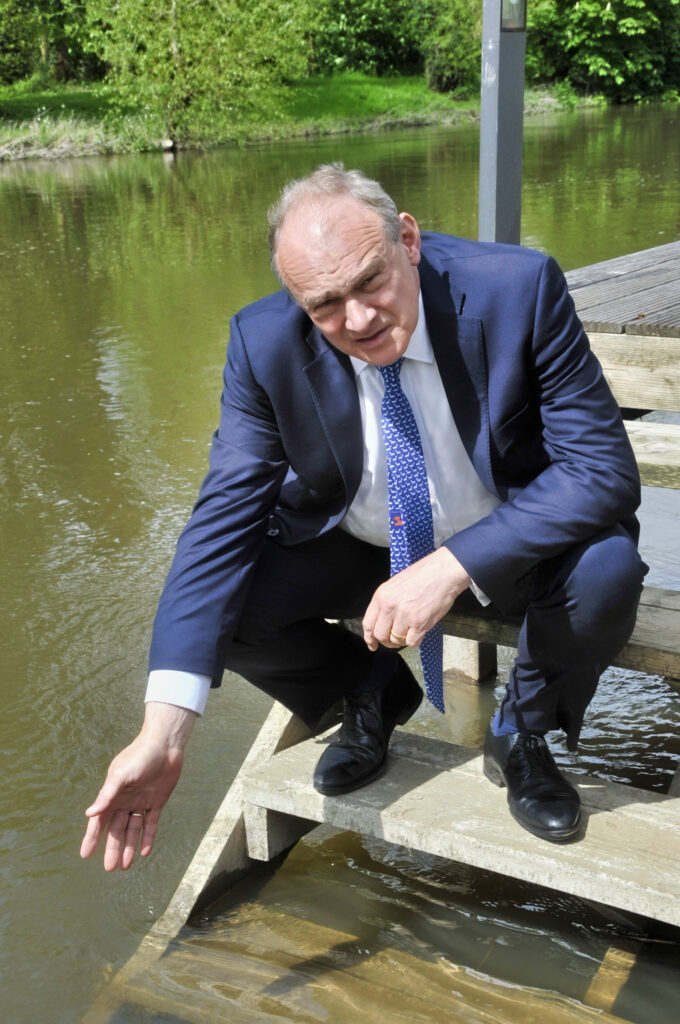Sir Ed Davey, leader of the Liberal Democrats, shared his views on the management of struggling water companies like Thames Water during an exclusive interview with My Wokingham. Conducted along the banks of the River Loddon in Wargrave, a constituent area of the newly formed Thames Ward of Wokingham Borough, Davey addressed the issue of renationalising Thames Water.
“For years, Liberal Democrats have been advocating for solutions to sewage and flooding issues, urging the Conservative government and MPs to take action. It’s regrettable that they haven’t listened or taken these concerns seriously. Instead, water companies have continued to prioritize hefty dividends for shareholders over crucial infrastructure investment and sewage problem resolution. Now, we’re facing a critical juncture where companies like Thames Water are teetering on the edge of financial collapse. This not only affects the water industry but also has ramifications for the UK as a whole,” expressed Davey.
A report by The Guardian highlighted concerns about the UK economy stemming from uncertainty surrounding Thames Water’s future.
Senior Whitehall officials are worried that Thames Water’s financial troubles could lead to a spike in government borrowing costs, reminiscent of the chaos following the Liz Truss mini-budget. There’s a growing belief among Treasury and Debt Management Office officials that Thames Water should be renationalized before the general election to mitigate these risks. They fear that prolonged uncertainty about the company’s fate could dent confidence in the UK economy, especially with elections looming in both the UK and the US later in the year.
In terms of potential solutions, Sir Ed Davey proposed a nuanced approach.

“We’ve advocated for temporary renationalization, utilising a Special Administration Regime, which provides a unique status. However, we believe there’s another model worth considering, similar to public benefit corporations used in other countries, including parts of the United States. This model incorporates commercial expertise while ensuring that environmental and public interests take precedence over profit, addressing a key flaw in the current system,” explained Davey.





















